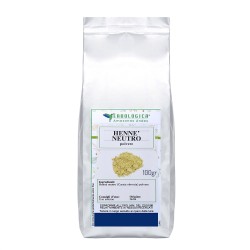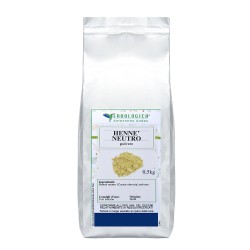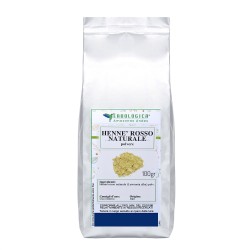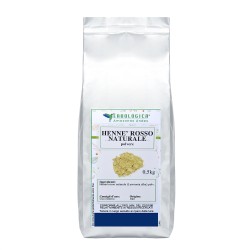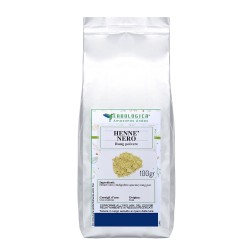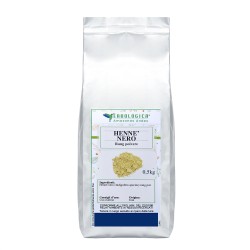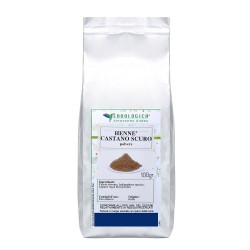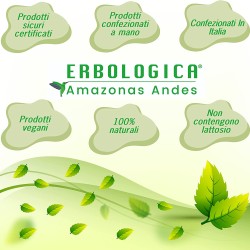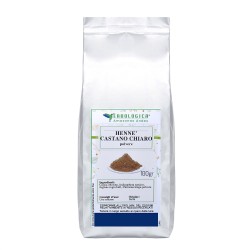
Henné naturale per la cura dei capelli
Il rimedio vegetale che colora, rinforza e protegge
L'henné naturale è una polvere vegetale ottenuta dalle foglie essiccate della lawsonia inermis, utilizzata da secoli per colorare i capelli in modo naturale.
Oltre a dare riflessi caldi e luminosi, l'henné agisce come trattamento rinforzante, migliorando la struttura del capello, il volume e la brillantezza.
A differenza delle tinte chimiche, non rovina la fibra capillare ma la protegge, rendendolo ideale anche per i capelli fragili e sfibrati.
scopri tutti i tipi di henné naturale erbologica disponibili qui per ogni esigenza.
Perché scegliere l'henné naturale per i capelli
colorazione delicata: dona riflessi naturali (ramati o castani a seconda del tipo)
effetto rinforzante: inspessisce e protegge il capello
azione antiforfora e seboregolatrice: utile in caso di cute grassa o irritata
assenza di sostanze chimiche: niente ammoniaca, ossidanti o profumi artificiali
Approfondisci gli effetti dellhenné sulla salute del cuoio capelluto su greenme.it o consulta i dati scientifici su ncbi.nlm.nih.gov.
Come usare l'henné sui capelli
miscela la polvere con acqua calda (eventualmente con infuso di camomilla o tè nero)
lascia riposare il composto 2-4 ore
applica su capelli puliti e asciutti
copri con pellicola e lascia in posa da 1 a 3 ore
risciacqua abbondantemente solo con acqua (niente shampoo per 24 ore)
Per una guida più dettagliata vedi il nostro tutorial su come applicare l'henné correttamente.
Consigli pratici ed errori da evitare
fai sempre una prova su una ciocca prima di applicare su tutta la chioma
se hai capelli tinti di recente con prodotti chimici, attendi almeno 4-6 settimane
non mischiare henné con oli se vuoi solo effetto colorante (rischi di attenuarlo)
non utilizzare ciotole o cucchiai in metallo
I nostri prodotti consigliati
impacco ayurvedico rinforzante per capelli
faq domande frequenti sull'henné naturale
Quali sono i benefici dell'henné per i capelli?
l'henné naturale rafforza la fibra capillare, dona lucentezza, migliora la struttura del capello e riduce la forfora. è anche utile per regolare la produzione di sebo.
Quanto dura l'effetto dell'henné?
l'effetto colorante dell'henné può durare da 4 a 6 settimane, mentre i benefici rinforzanti si notano già dopo le prime applicazioni e aumentano con l'uso regolare.
Posso usare l'henné su capelli trattati chimicamente?
sì, ma è importante aspettare almeno 4-6 settimane dopo una tinta chimica prima di applicare l'henné. questo evita reazioni indesiderate o riflessi imprevisti.
L'henné è adatto a tutti i tipi di capelli?
assolutamente sì. è adatto a capelli secchi, grassi, fini o crespi. bisogna solo scegliere il tipo di henné giusto in base al colore desiderato e al proprio tipo di cute.
Posso usare l'henné se ho capelli bianchi?
sì, l'henné copre i capelli bianchi in modo naturale. con l'henné rosso i bianchi diventano ramati; per copertura più scura si può usare una miscela con indigofera tinctoria.


